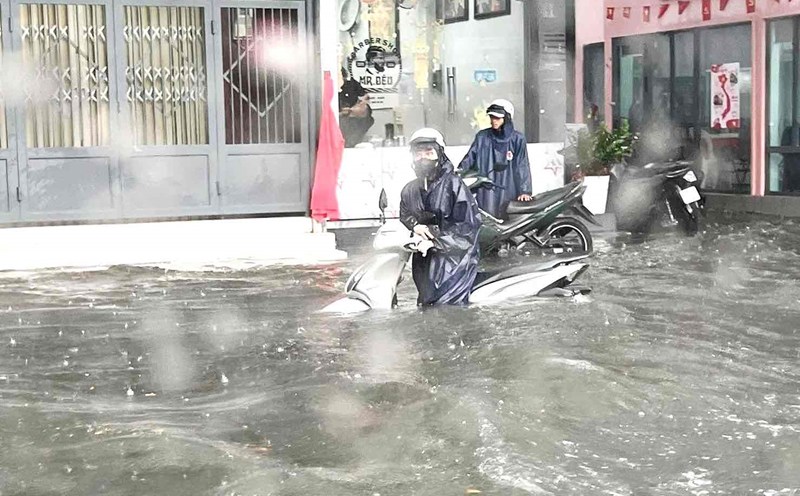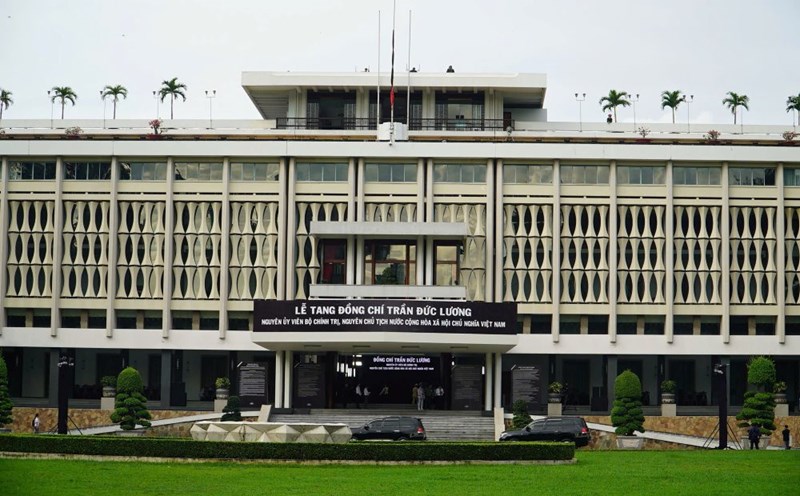On the morning of May 19, the National Assembly discussed in the hall the draft Law amending and supplementing a number of articles of the Law on Organization of People's Courts (TAND).
The draft law has amended and supplemented regulations on the organization of the court system in the direction of ending the activities of the High People's Court and District People's Court; establishing a regional People's Court; converting specialized first instance courtes into specialized courts in the regional People's Court.
With this organizational model, the Supreme People's Court is given additional duties and authority to appeal criminal cases whose judgments and decisions do not have legal effect from provincial-level courts that are appealed or appealed.
The Chief Justice of the Supreme People's Court reported on the reception and explanation of the group discussion opinions of National Assembly deputies on the draft law after the group discussion session on May 8.
Before the opinion of the delegate proposed to add to the draft Law "Chief Justice of the provincial Court to answer questions to the provincial People's Council", the Supreme Court said that the Chief Justice of the provincial Court is still performing the task of answering questions, in accordance with the Law on Supervision activities of the National Assembly and the People's Council.
Regarding the issue raised by National Assembly deputies, when giving comments on the draft resolution amending and supplementing a number of articles of the Constitution, the Supreme People's Court proposed to hold this position of the Chief Justice of the provincial court.
Based on the results of amending and supplementing a number of articles of the Constitution, the Supreme People's Court will propose amending and supplementing this provision in the Law on Supervisory Activities of the National Assembly and People's Councils to comply with the Constitution and not to repeat it in this law to avoid duplication.
There were opinions from delegates suggesting clarifying the reasons for not allowing the court in the trial area of a criminal case to have a penalty of more than 20 years in prison.
Explaining the opinion, the Supreme People's Court said that it is necessary to continue to regulate provincial-level courts to perform the task of first instance trial in a number of criminal cases on crimes with the highest penalty of over 20 years in prison, life imprisonment, and death.
This is a step too much as the trial capacity of a few judges in mountainous, remote and isolated areas has not fully met the requirements.
In the coming time, when the judge capacity in these courts is increased to be equal to other courts across the country, the Supreme People's Court said it will continue to study and propose increasing the authority to appear under the first instance procedure for all criminal cases to the regional People's Court.
The draft law proposes to increase the number of Supreme People's Court judges from 13-17 to 23-27. In addition to consensus, there are opinions suggesting clarifying this increase.
Explaining this content, the Supreme Court said that in order to ensure adequate human resources for timely and quality settlement with the work of cassation and re-examination of the Supreme People's Court received from the high-level People's Court (at the end of the activity), the increase in the number of supreme People's Court to 23-27 people is necessary.
According to statistics, the Supreme People's Court and high-level courts are having to resolve about 11,200 petitions for review/year; trial according to the review and review procedure about 1,000 cases/year.
The Supreme Court stated that it will synchronously implement many different solutions to reduce and control the number of petitions for review and re-examination by directors and the number of cases that must be re-examined and re-examined by directors at the Supreme Court.











